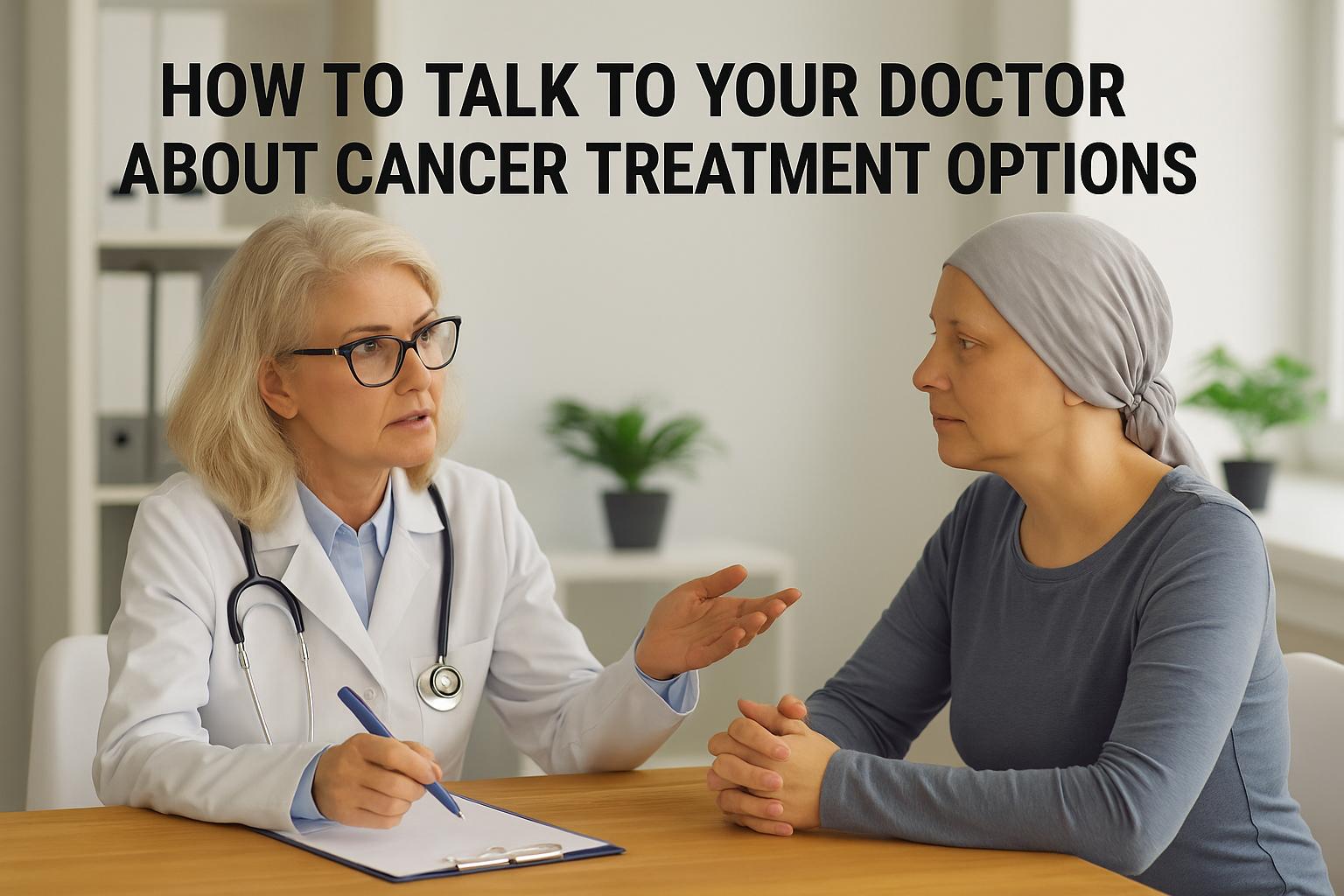Understanding Your Diagnosis
Talking to your doctor about cancer treatment can be overwhelming. Receiving a cancer diagnosis often leaves one with a sense of unease and confusion as you navigate unfamiliar medical terms and potential treatments. Understanding your diagnosis is the initial step that provides a foundation for all the subsequent decisions you will need to make. Knowing the specifics of your condition empowers you to engage actively in your treatment and care. Therefore, it is imperative to have your doctor clarify the type and stage of your cancer. This foundational knowledge not only aids you in grasping the treatment options but also helps you understand their purpose and potential outcomes.
Questions to Consider
When you’re discussing your diagnosis with your healthcare provider, it’s vital to ensure that you fully understand what’s occurring within your body. You might consider asking a series of pointed questions to gain clarity, which include:
- What type of cancer do I have?
- Where is it located?
- What is the stage, and what does it mean for my health?
These questions are not exhaustive, but they provide a critical starting point for a deeper comprehension of your condition. Understanding your diagnosis fully can ease the progression into subsequent treatment discussions and decisions.
Exploring Treatment Options
Once the specific aspects of your diagnosis are clear, the next logical step is to explore your treatment options. The choice of treatment is a critical decision influenced by various factors, including the type and stage of cancer, as well as your overall health and personal circumstances. Your doctor typically recommends treatments based on the aforementioned factors, and it is important for you to be an active participant in these discussions.
Common Treatment Methods
It is vital to familiarize yourself with the common treatments available:
- Surgery: Often the first line of defense, surgery involves the physical removal of the tumor and some surrounding tissue. The aim is to eliminate cancerous tissue from the body, and it may be combined with other treatments before or after the surgery.
- Chemotherapy: This method uses powerful drugs to kill rapidly dividing cancer cells. Chemotherapy can be delivered orally or intravenously and is often used to treat widespread or aggressive cancer types.
- Radiation Therapy: Utilizing high-energy waves such as X-rays, this treatment aims to destroy cancer cells. It can be used alone or in conjunction with other treatments to maximize effectiveness.
- Immunotherapy: This cutting-edge treatment harnesses the body’s immune system to fight cancer. It represents a significant advancement in cancer treatment, offering options for types which might not respond well to traditional methods.
Though this list includes common treatments, it is by no means exhaustive. Consulting reputable sources, such as government health websites or reputable cancer organizations, can provide more comprehensive information on novel treatments and strategies to manage cancer effectively.
Communicating Effectively
Effective communication with your medical team is a cornerstone of successful treatment and care. Clearly expressing your concerns, preferences, and goals facilitates a shared understanding and improved treatment outcomes. To fully engage in shared decision-making, never hesitate to seek a second opinion if uncertain about the treatments suggested.
Key Communication Tips
Effective communication with healthcare providers can be bolstered by adopting several strategies, such as:
- Write down your questions before appointments: Doing this ensures that you address all your concerns, especially when a lot of information is presented.
- Bring a friend or family member for support and note-taking: They can provide emotional support and help in remembering information provided during appointments.
- Ask for clarification when needed: Medical terminology can be complex; asking for simpler explanations ensures you fully understand your condition and treatment options.
These strategies help facilitate meaningful dialogue between you and your healthcare providers, ensuring that your concerns are addressed and your treatment plan aligns with your circumstances.
Understanding Risks and Benefits
Each treatment option carries its unique set of risks and benefits, which must be carefully assessed to make informed decisions about your care. Utilizing your partnership with your healthcare provider, you can inquire about these factors and weigh them against your priorities and lifestyle goals.
Sample Questions to Ask
Having a well-rounded understanding of the risks and benefits associated with each treatment option is beneficial. You might ask your doctor questions like:
- What are the expected benefits and success rates?
- What are the possible side effects?
- How will these treatments impact my daily activities?
These questions not only help you evaluate the potential effectiveness and impact of treatments but also allow you to gauge their alignment with your personal and health goals.
Considering Clinical Trials
Clinical trials offer unique opportunities to access new therapies that might not yet be widely available or standard. They are essential in advancing medical knowledge and treatment options. Discussing the availability and suitability of clinical trials with your doctor is imperative to determine if they could be appropriate based on your specific cancer diagnosis and treatment goals.
Questions About Clinical Trials
In deciding whether to participate in a clinical trial, consider asking:
- Are there clinical trials available for my type of cancer?
- What are the risks and benefits of participating?
- How might this affect my current treatment plan?
These inquiries can guide you in understanding what participation would entail and how it might fit into your broader treatment strategy.
Preparing for a Decision
Deciding on a treatment plan necessitates thorough preparation and thoughtful consideration. Gathering all necessary information is just one part of the process; you also need to consider your personal values, lifestyle preferences, and consult with your support system. Each of these components is critical to crafting a decision that aligns most closely with both your health needs and life goals. Ultimately, preparing for a decision about your cancer treatment is a multifaceted process that demands careful thought, open communication with healthcare providers, and collaboration with loved ones.
This article was last updated on: October 30, 2025

